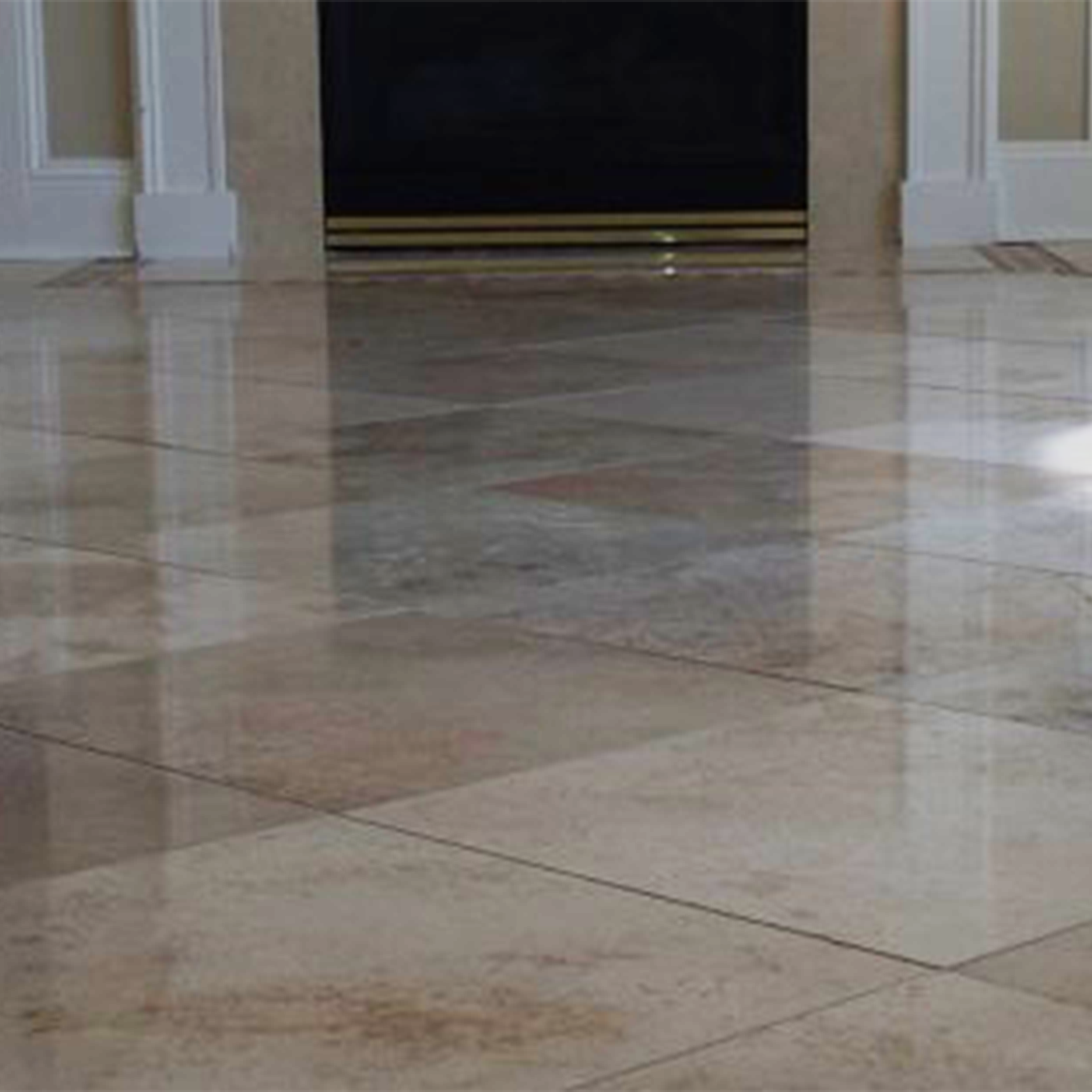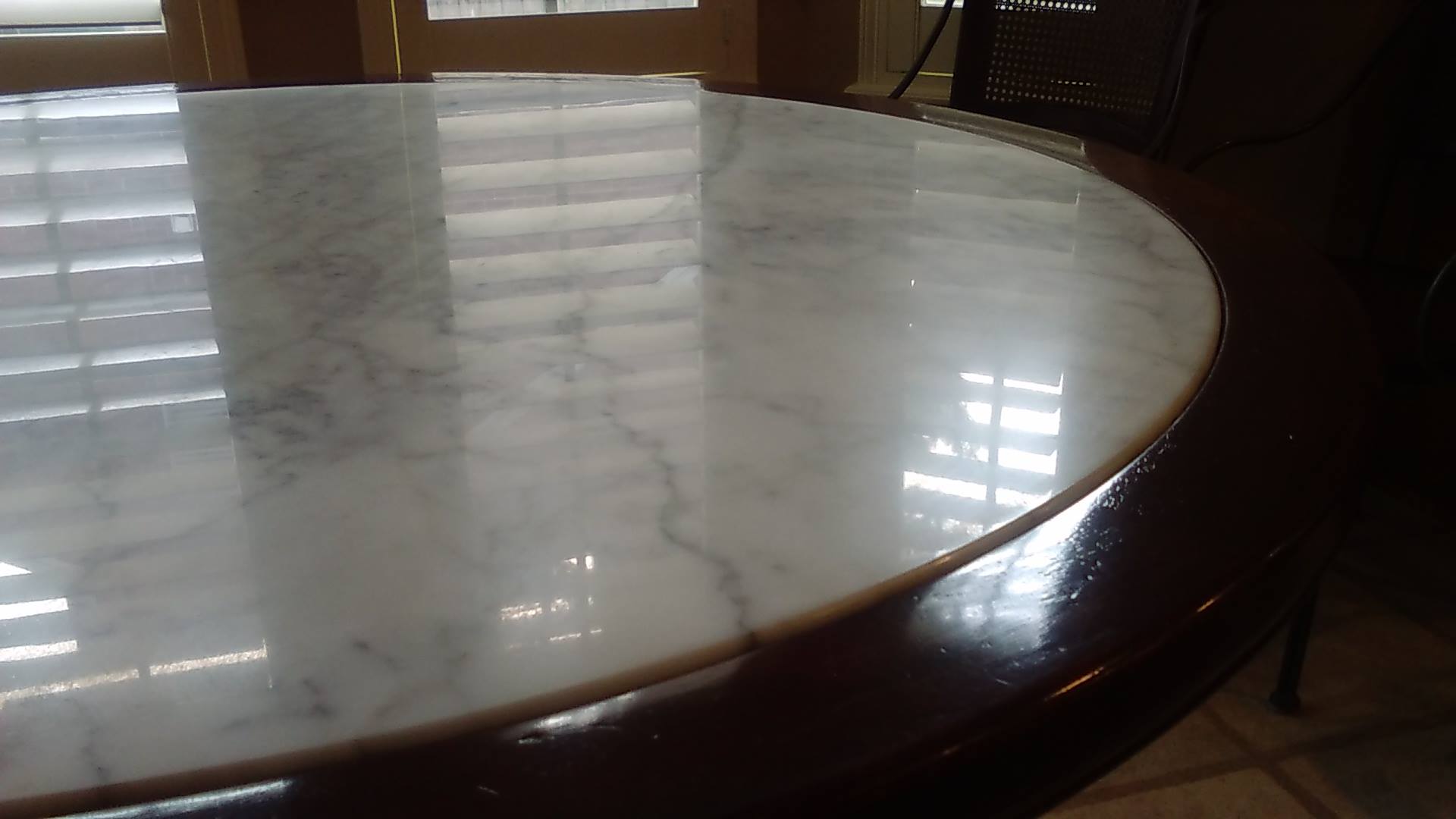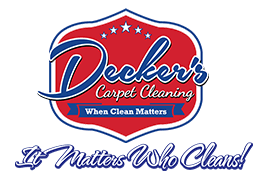Professional Stone Floor Honing and Polishing Services From Decker's Carpet Cleaning
Stone floors such as Marble, Travertine, and Limestone (MTL) are porous and will absorb liquid and soils. Eventually, these soils become so deep that even aggressive cleaning methods may not remove them. It is important to keep up with your stone floor maintenance to prevent further damage. Many times our customers desire a deeper clean to remove stains, or need to remove damage from dragged furniture, improper use of cleaning agents causing hazing, or just everyday wear.
Decker's Carpet Cleaning has been cleaning, honing, polishing, and sealing stone floors in the Houston area since 2011. We have experience with many different stone floor scenarios, and have 650 reviews from your neighbors.

About Marble, Travertine and Limestone
Marble, travertine, and limestone floors are all related, but are products of different stages of geological processes. Limestone is a sedimentary rock composed of calcium carbonate. It is not uncommon to see shells and fossils in limestone. Over time with additional pressure and the addition of mineral content, limestone becomes travertine. The location of the travertine will determine the mineral composition and give it different hues.
Marble is a metamorphic rock. Over ages of time and immense heat and pressure the calcite in limestone will melt and recrystallize. When this happens, the limestone becomes denser and harder and develops rich colors from the additional mineral content. The varied mineral content will give marble its unique color and veins while the crystal formations give it its depth and sparkle.
Stone is rated for hardness on a scale known as the Moh's Scale of Hardness. Talc is the softest natural stone, ranking a 1 and diamonds are a 10 on the Moh's scale. Marble, Travertine, and limestone range on the hardness scale from 2 to 4.
Marble, Travertine and Limestone Honing
Marble, Travertine, and Limestone floors are easily scratched, and can quickly become dull or damaged by even general household soil and traffic. The calcium in MTL stone floors makes them sensitive to acid and can become etched by household spills like juice and vinegar. MTL Stone floors are also sensitive to alkaline and many cleaning solutions can etch or burn the stone if misused, leaving a difficult to remove hazed look. Once a stone floor becomes neglected, it needs professional tools and experience to revive it.
Marble, Travertine, and Limestone floors can be polished or honed to
remove scratches, etching, haze, and pitting. At Decker's Carpet
Cleaning we use diamond impregnated pads, diamond embedded resin discs,
and various powders and pads to hone a stone floor. Honing can be
thought of as similar to sanding wood to remove the rough texture and
leave a smooth finish. The deeper you hone, the deeper the level of
damage you can remove. Different levels of coarseness are used to remove
scratches of different depths. Sometimes we only need one or two levels,
and sometimes six or more.
A finished honed floor will have a Matte or Flat reflection. A less
reflective floor will hide slight scratches and wear, but may absorb
soils faster.
Honing is done when a surface has light to heavy scratches and traffic wear and may need to be done every five to twenty years depending on care and traffic. Honing will leave the stone with a flat to matte finish depending on the level of reflection desired. Honing leaves very open pores and stone should be sealed. Aside from removing damage, honing will also bring out the natural colors in the stone and deliver a reflective quality from flat to matte. You will notice the colors will be richer and deeper and the calcite crystal formations will contrast the non-crystal areas.
Marble, Travertine, and Limestone Polishing
Polishing stone will bring a semi gloss to high gloss finish, depending on your desired results and how the stone responds to diamond or powder polishing. Polishing will also help to protect your stone even further by closing the face of the stone and decreasing the porosity. Polishing is done mechanically, similar to honing, and never through a shiny coating. The finish will lose its reflective quality over time due to traffic, soils and the use of harsh cleaning solutions. A polished stone that has dulled can be quickly touched up and re-polished up again to keep it beautiful and protected. Polishing seals the pores more than honing, but stone should still be sealed afterwards.

A Stone Floor Maintenance Plan
- Regular and ongoing proper maintenance is needed once your stone is polished and sealed
- A good maintenance plan takes into account the level of traffic and desire and budget of the client, but also serves to preserve your stone for the sake of the stone for the long term.
- For honed and polished floors, we recommend a maintenance hone or polish every year or so to keep the floor looking amazing and reduce the damage from light scratching. We recommend using the highest quality sealer possible after each maintenance visit.
- We can polish your stone prior to a party, wedding, or other big event to make your home reflect its beauty.
- We recommend a professional cleaning at least every three years. At the three year mark oils, sand and dust particles, and soil begin to reach depths that make it very hard to remove without honing. Cleaning every three years or less will preserve your stone and prolong its life and good looks.
- Your stone should be sealed after every professional cleaning, and may need to be sealed after polishing. We prefer a solvent based impregnating sealer that will protect your stone by penetrating deep into the stone to fill voids, crevices, capillaries, and pores. We also enjoy color enhancing sealers that help add an incredible beauty to some honed and polished stone.
All stone should be sealed after treating. Whether it is cleaned, honed, or polished, the stone is naturally porous and has capillaries that will allow soil, soaps, particles, urine from pets, liquid spills, and dirty mop or rain water to penetrate deep into the stone. Sealing will slow the penetration of these contaminants and reduce damage from acids and oils. Our professional grade sealers are rated to last from 3 to 5 years. We offer a variety of sealers for different situations, including color enhancing sealer. You can read about all of the sealers we offer on our Stone Sealer page.
We also offer Stone Floor Cleaning and Stone Repair services.
All Stone Services:
Stone Floor CleaningStone Sealers
Granite Countertops
Stone Repair
Stay Beautiful Club - Maintenance Program
